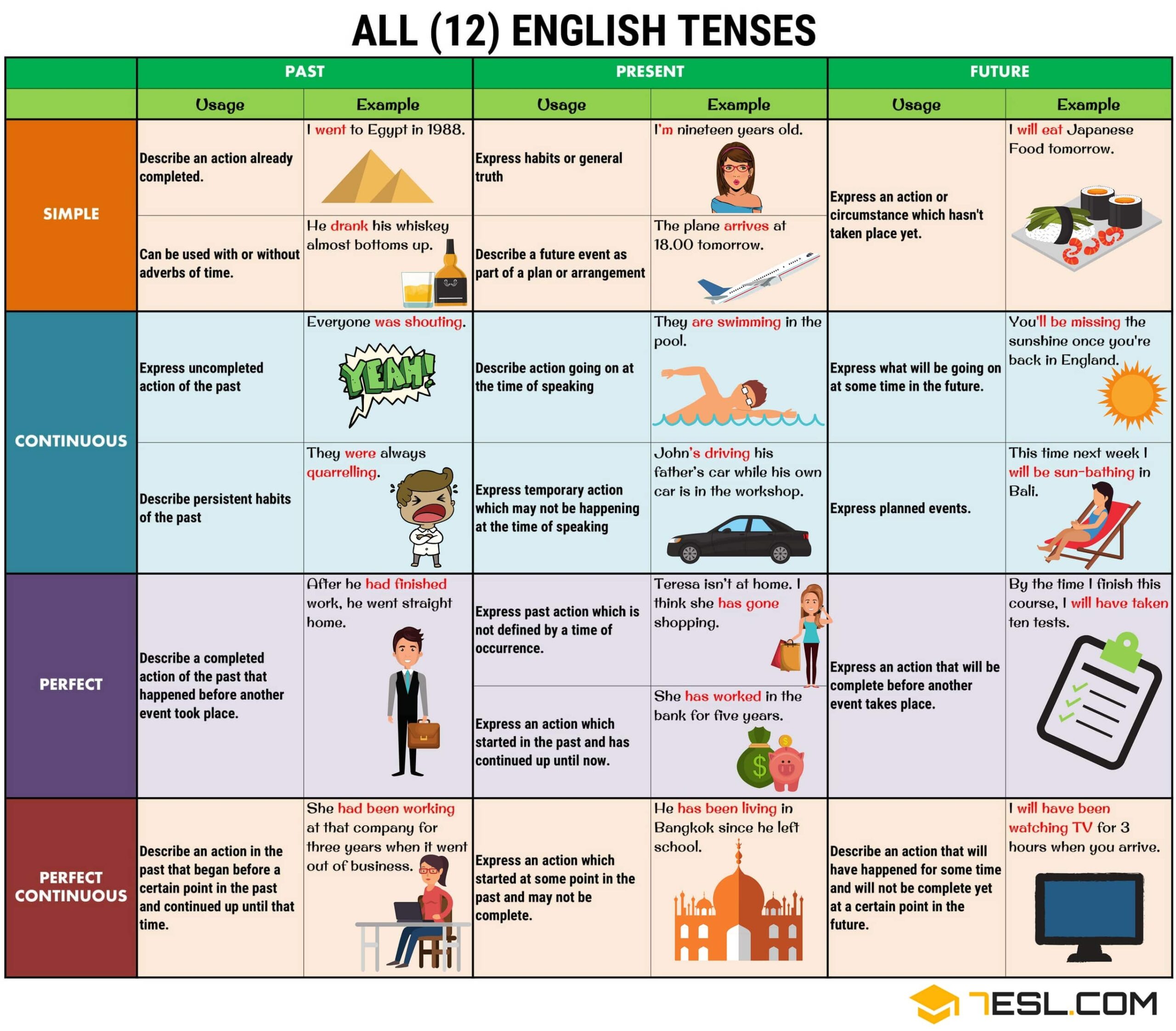Understanding tenses in the English language is essential for effective communication. Tenses help us to indicate when an action took place, whether it is in the past, present, or future. By using the correct tense, we can convey our ideas clearly and accurately.
There are various tenses in English, each serving a specific purpose in expressing different time frames. It is important to be familiar with these tenses in order to use them correctly in writing and speaking.
Tenses in English Language
One of the most commonly used tenses in English is the present simple tense. This tense is used to describe actions that are habitual, general truths, or facts. For example, “I walk to school every day” or “The sun rises in the east.”
The past simple tense is used to talk about actions that happened at a specific time in the past. For example, “I visited Paris last summer” or “She cooked dinner yesterday.” It is important to note that regular verbs in the past simple tense end in -ed, while irregular verbs have unique past forms.
The present continuous tense is used to describe actions that are happening at the moment of speaking. For example, “I am studying for my exam right now” or “They are playing football in the park.” This tense is formed by using the verb “to be” in the present tense and adding the present participle (-ing) form of the main verb.
The future simple tense is used to talk about actions that will happen in the future. For example, “I will call you tomorrow” or “She is going to travel to Japan next month.” This tense is formed by using the modal verb “will” or “going to” followed by the base form of the main verb.
It is important to practice using different tenses in English in order to become proficient in expressing ideas accurately. By mastering tenses, you can improve your communication skills and convey your thoughts effectively in both written and spoken English.
In conclusion, understanding tenses in the English language is crucial for effective communication. By familiarizing yourself with the various tenses and practicing their usage, you can enhance your language skills and communicate with clarity and precision.
